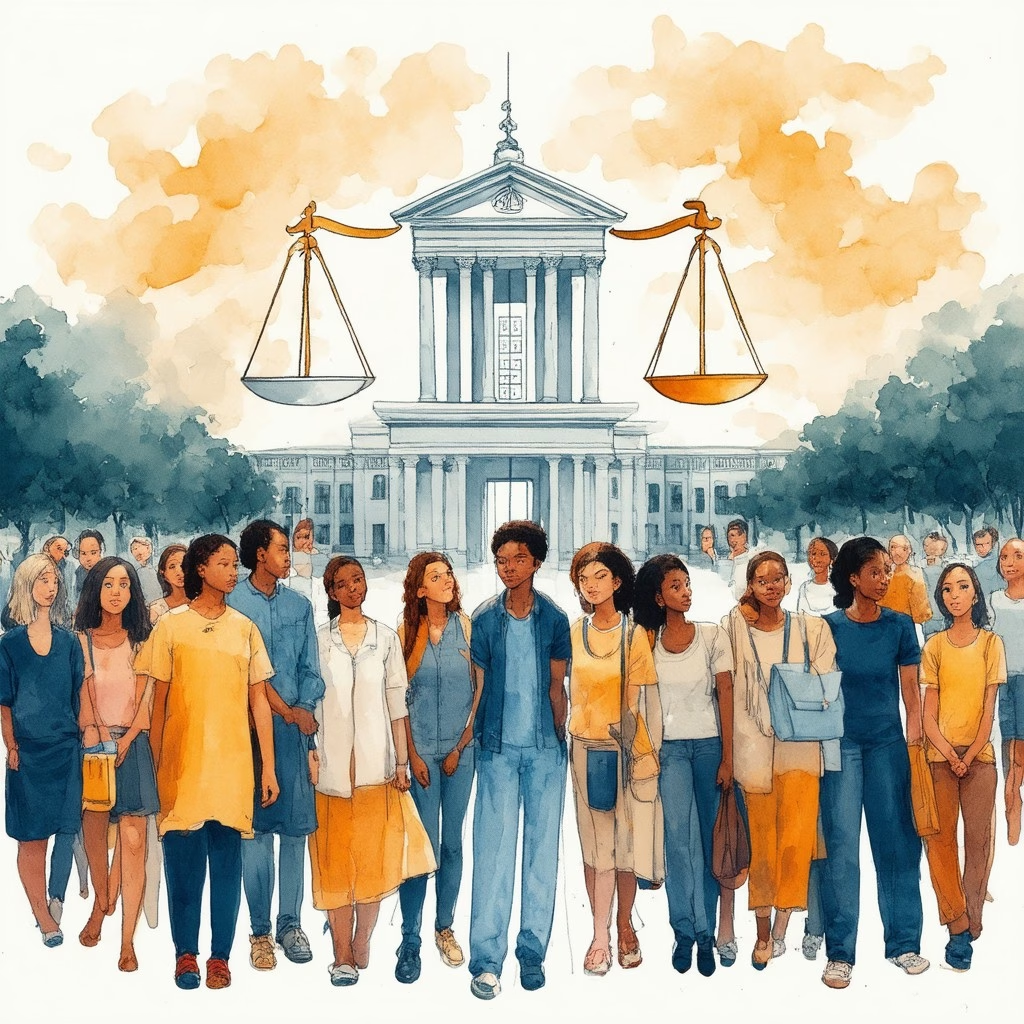Key Takeaways
- Explore free legal aid options to secure representation without financial burden.
- Understand income eligibility thresholds, often set between 125% to 200% of the federal poverty level.
- Utilize resources like the Legal Services Corporation to find local legal aid offices.
- Access free lawyers for low-income families through nonprofit organizations and legal clinics.
- Gather necessary documentation to streamline the application process for legal aid.
Finding legal representation can be a daunting task, especially for those navigating the complexities of the legal system on a tight budget. In this article, we will explore how to get a lawyer with low income, providing essential insights into free legal aid and affordable options available to individuals and families in need. We will delve into critical topics such as the maximum income to qualify for legal aid, the costs associated with legal aid lawyers, and the resources available for accessing free attorneys. Additionally, we will highlight organizations that offer free legal assistance for low-income families, including options for divorce and family law. Whether you are asking yourself, “I need a lawyer but have no money” or “how can I get a lawyer without money”, this guide aims to equip you with the knowledge and resources necessary to secure the legal support you deserve.
Understanding Legal Aid Eligibility for Low-Income Individuals
Legal aid is a crucial resource for individuals who cannot afford legal representation. It provides access to essential legal services, ensuring that everyone has the opportunity to seek justice, regardless of their financial situation. Understanding the eligibility criteria for legal aid is vital for low-income individuals seeking assistance.
Overview of Legal Aid Programs
Legal aid programs are designed to assist low-income individuals in accessing legal services. These programs typically cover a range of legal issues, including family law, housing disputes, and criminal defense. In many states, legal aid is funded by both federal and state governments, as well as private donations. Organizations like the Legal Services Corporation play a significant role in providing funding and resources to local legal aid offices.
To qualify for legal aid, applicants must demonstrate financial need, which is assessed based on income and family size. Various programs may have different eligibility requirements, so it’s essential to check with local legal aid offices for specific guidelines. For example, in Alberta, individuals with a gross income of up to $30,000 may qualify for legal representation in various cases, including criminal, family, and immigration matters. These income limits can vary based on family size and specific circumstances, highlighting the importance of consulting resources like the Legal Aid Alberta website for comprehensive details on the application process and eligibility requirements.
Income Guidelines for Legal Aid Qualification
Income guidelines are a critical factor in determining eligibility for legal aid. Each state or region may have its own set of income thresholds. For instance, many programs use the federal poverty level as a benchmark. Generally, individuals or families earning below a certain percentage of the poverty level may qualify for legal assistance. This percentage can range from 125% to 200% of the federal poverty line, depending on the program.
It’s important to note that these income thresholds can vary significantly based on family size. A larger household may have a higher income threshold to qualify for legal aid. For the most accurate and updated information regarding eligibility criteria, including potential changes in income limits, individuals should refer to official government websites or consult with a legal professional. Access to legal aid has been shown to significantly impact the outcomes of legal proceedings, making it essential for those in need to understand these thresholds and seek assistance when necessary.

Understanding Legal Aid Eligibility for Low-Income Individuals
When seeking legal assistance, understanding the eligibility criteria for legal aid is crucial, especially for low-income individuals. Legal aid programs are designed to provide support to those who cannot afford legal representation. In this section, we will explore the various legal aid programs available and the income guidelines that determine eligibility.
Overview of Legal Aid Programs
Legal aid programs offer essential services to individuals and families facing legal challenges but lacking the financial means to hire a private attorney. These programs typically cover a range of legal issues, including family law, housing disputes, and consumer protection. Many organizations provide free lawyers for low-income families and can assist with navigating complex legal processes.
In addition to traditional legal aid, there are pro bono services offered by private attorneys who volunteer their time to assist those in need. These services can be invaluable for individuals asking, “how to get a lawyer with low income” or “i need a lawyer but have no money.” Resources like the Legal Services Corporation can help connect individuals with local legal aid offices.
Income Guidelines for Legal Aid Qualification
To qualify for legal aid, applicants must meet specific income guidelines, which can vary by state and organization. Generally, legal aid programs require that applicants’ income falls below a certain percentage of the federal poverty level. For instance, many programs set the threshold at 125% to 200% of the federal poverty line, depending on the type of legal assistance needed.
For those wondering about the minimum income to get legal aid, it is essential to check the specific requirements of the legal aid organization in your area. You may also need to provide documentation to prove your income, which can include pay stubs, tax returns, or other financial statements. Understanding these guidelines can significantly enhance your chances of receiving legal assistance free of charge.
Finding Free Legal Representation in Texas
If you’re wondering how to get a lawyer with low income, Texas offers several resources to help individuals secure free legal representation. These services are designed specifically for those who cannot afford to hire an attorney. Here are some key options:
Resources for Free Lawyers for Low-Income Families
Yes, you can get a free lawyer in Texas through various resources designed to assist individuals who cannot afford legal representation. Here are some key options:
- Texas Legal Services Center (TLSC): This nonprofit organization provides free legal assistance to low-income Texans, particularly in rural areas. They offer services based on income eligibility and can help with various legal issues, including family law, housing, and public benefits. More information can be found on their website at www.tlsc.org.
- Legal Aid of Northwest Texas: This organization offers free legal services to eligible clients in 114 counties across Texas. They focus on civil legal issues and provide representation in areas such as family law, consumer protection, and housing. Visit www.lantx.org for more details.
- Texas RioGrande Legal Aid (TRLA): Serving a large portion of South and West Texas, TRLA provides free legal services to low-income individuals. They handle cases involving immigration, housing, and public benefits. For assistance, check their website at www.trla.org.
- State Bar of Texas: The State Bar offers a Lawyer Referral and Information Service (LRIS) that can connect you with a qualified attorney. While the initial consultation may be free, further services may incur fees. More information is available at www.texasbar.com.
- Local Law Schools: Many law schools in Texas, such as the University of Texas School of Law and Texas Southern University Thurgood Marshall School of Law, have legal clinics where law students provide free legal assistance under the supervision of licensed attorneys.
- Pro Bono Programs: Various local bar associations in Texas have pro bono programs that offer free legal services to those in need. Check with your local bar association for available resources.
These resources are essential for ensuring that all Texans have access to legal representation, regardless of their financial situation.
How to Access Free Attorney Services in Texas
To access free attorney services in Texas, follow these steps:
- Determine Your Eligibility: Most organizations require you to meet specific income guidelines. Check the eligibility criteria on their websites.
- Contact the Organization: Reach out to the legal aid organization that best fits your needs. Be prepared to provide information about your financial situation and the legal issue you are facing.
- Gather Necessary Documentation: You may need to provide proof of income, identification, and any relevant legal documents related to your case.
- Follow Up: After your initial contact, follow up if you do not hear back within a reasonable timeframe. Persistence can be key in accessing the help you need.
Utilizing these resources can significantly ease the burden of legal challenges for low-income families. For more information on legal assistance options, visit Understanding legal aid options.
Understanding the Costs Associated with Legal Aid
When seeking legal assistance, especially for low-income individuals, understanding the costs associated with legal aid is crucial. Many people wonder, “How much does a legal aid lawyer cost?” The good news is that legal aid services are designed to be affordable or even free for those who qualify. This section will explore the fees and expenses related to legal aid lawyers, as well as compare these costs to those of private attorneys.
Fees and Expenses for Legal Aid Lawyers
Legal aid lawyers typically provide their services at little to no cost for low-income families. Most legal aid organizations operate on a sliding scale based on income, meaning that those with lower incomes may qualify for free legal assistance. For example, if you are wondering how to get a lawyer with low income, legal aid programs can be an excellent resource. They often cover various legal issues, including family law, housing disputes, and more.
While some legal aid organizations may charge nominal fees for specific services, these costs are generally much lower than hiring a private attorney. It’s essential to inquire about any potential fees upfront when contacting a legal aid office. Additionally, many legal aid programs offer free consultations, allowing you to discuss your case without financial commitment.
Comparing Costs: Legal Aid vs. Private Attorneys
When considering your options for legal representation, it’s helpful to compare the costs of legal aid with those of private attorneys. Private lawyers often charge hourly rates that can range significantly, typically starting from $100 to $500 per hour, depending on their experience and the complexity of the case. In contrast, legal aid lawyers are focused on providing access to justice for low-income individuals, which means they aim to minimize costs.
For those who are asking, “I need a lawyer but have no money,” exploring legal aid options is a practical step. Many legal aid organizations also provide resources for free divorce attorneys and other legal assistance for divorce, ensuring that individuals do not have to navigate the legal system alone. By utilizing legal aid services, you can receive the necessary support without the burden of high legal fees.
For more information on accessing free legal services, visit Steps for accessing legal services or check out Free lawyers for low-income families.

What is the Minimum Income to Get Legal Aid?
Understanding the minimum income requirements for legal aid is crucial for low-income individuals seeking legal assistance. Legal aid programs are designed to provide support to those who cannot afford a lawyer, ensuring that everyone has access to justice. Here’s a closer look at the income thresholds and how to prove your income for legal aid applications.
Income Thresholds for Various Legal Aid Programs
Different legal aid programs have varying income thresholds that determine eligibility. Generally, these thresholds are based on the federal poverty level (FPL), which is updated annually. Here are some key points to consider:
- Federal Poverty Level (FPL): Many legal aid organizations use the FPL as a benchmark. For instance, individuals earning up to 125% of the FPL may qualify for assistance, while some programs extend eligibility to those earning up to 200% of the FPL.
- State Variations: Income limits can vary by state and the specific legal aid organization. It’s essential to check local guidelines to understand the exact thresholds applicable in your area.
- Special Considerations: Some programs may have different criteria for specific legal issues, such as domestic violence or housing disputes, allowing for broader eligibility.
How to Prove Income for Legal Aid Applications
Proving your income is a vital step in applying for legal aid. Here are the common requirements and steps to follow:
- Documentation Required: Typically, you will need to provide pay stubs, tax returns, or bank statements to verify your income. If you receive government assistance, documentation of that support may also be necessary.
- Application Process: When applying for legal aid, you will fill out an application form that includes questions about your income and household size. Be prepared to submit the required documentation along with your application.
- Confidentiality: Legal aid organizations are committed to maintaining the confidentiality of your financial information, ensuring that your data is handled securely.
For more detailed information on eligibility and services, consult the Legal Services Corporation or your local legal aid office. Understanding these income requirements can help you navigate the process of obtaining legal assistance effectively.
What is the minimum income to get legal aid?
Understanding the minimum income requirements for legal aid is crucial for low-income individuals seeking legal assistance. Legal aid programs are designed to help those who cannot afford legal representation, ensuring access to justice for everyone, regardless of their financial situation. The specific income thresholds can vary by state and the type of legal aid needed, but generally, they are set to assist those with limited financial resources.
Income Thresholds for Various Legal Aid Programs
To qualify for legal aid, applicants typically must meet certain income thresholds. For example, in many states, the gross income limit is often set at or below 125% of the federal poverty level. This means that for a single individual, the maximum gross income would be approximately $16,100 annually, while for a family of four, it would be around $33,500. These figures can vary, so it’s essential to check the specific guidelines for your state.
Additionally, some programs may have different thresholds based on the type of legal assistance required. For instance, legal aid for family law matters, such as divorce or custody disputes, may have different income requirements compared to criminal defense or housing issues. Understanding these distinctions is vital for those asking, “how can I get a lawyer with low income?”
How to Prove Income for Legal Aid Applications
When applying for legal aid, individuals must provide documentation to prove their income. This typically includes:
- Recent pay stubs or proof of income from employment.
- Tax returns from the previous year.
- Bank statements showing monthly deposits.
- Documentation of any government assistance received, such as food stamps or unemployment benefits.
It’s important to gather all necessary documents to streamline the application process. For those who are unsure about how to proceed, resources like Steps for accessing legal services can provide valuable guidance.
Accessing Free Legal Services for Families in Need
For families facing legal challenges, accessing free legal services can be crucial. Understanding where to find free lawyers for low-income families can help alleviate the stress of legal issues, whether they involve family law, housing disputes, or other matters. Here, we explore organizations and resources that provide essential legal support to those in need.
Organizations Offering Free Family Lawyers
Several organizations specialize in providing free family lawyers to low-income individuals. These organizations often focus on specific legal areas, such as family law, immigration, or housing. Key resources include:
- Legal Services Corporation: This national organization funds legal aid programs across the United States, ensuring that low-income families can access necessary legal assistance.
- American Bar Association: The ABA offers a directory of legal aid resources and pro bono services, helping families find free attorneys in their area.
- Local legal aid offices: Many states have their own legal aid organizations that provide free legal services to low-income residents. Searching for your state’s legal aid office can yield valuable resources.
- Nonprofit organizations: Groups like Nolo provide information on finding free legal help and may connect families with volunteer attorneys.
Navigating Family Court with Free Legal Assistance
Navigating family court can be daunting, especially for those unfamiliar with legal processes. Utilizing free attorney services can make this journey smoother. Here are some tips for effectively working with free legal assistance:
- Prepare documentation: Gather all relevant documents related to your case, such as financial records, custody agreements, or any previous court orders. This preparation will help your attorney understand your situation better.
- Communicate clearly: Be open and honest with your attorney about your circumstances. Clear communication can lead to more effective representation.
- Follow up: Stay in touch with your attorney and follow up on any necessary actions or court dates. Being proactive can help ensure your case progresses smoothly.
By leveraging these resources and tips, families can access the legal support they need without the burden of high costs. For more information on free lawyers for low-income families, visit our comprehensive guide.




